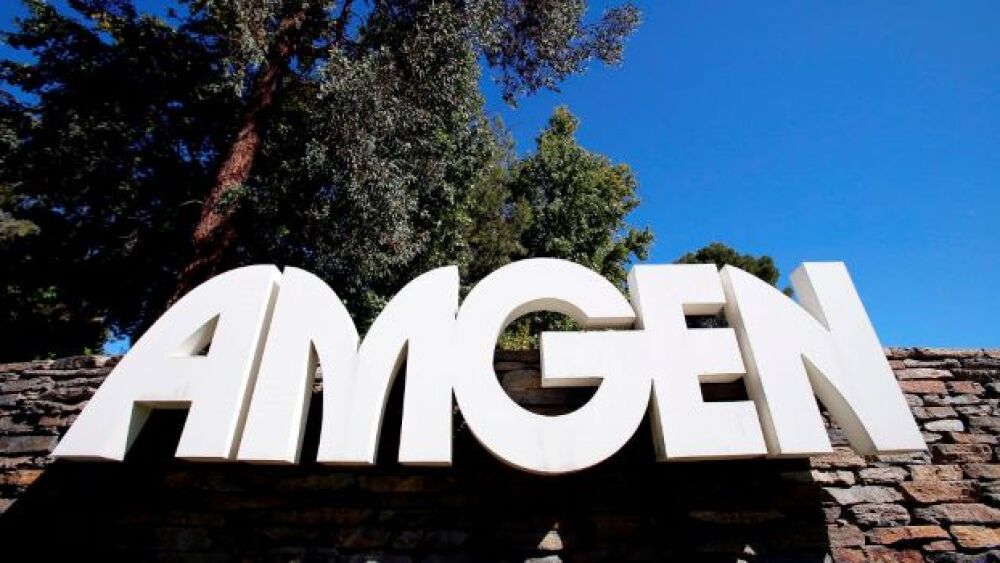Early data from Amgen’s ongoing trial on Lumakras for non-small cell lung cancer hinted at positive results from what could be a transformative combination of drugs versus cancer.
Al Seib/Los Angeles Times via Getty
Early data from Amgen’s ongoing trial on Lumakras (sotorasib) for non-small cell lung cancer (NSCLC) hinted at positive results from what could be a transformative combination of drugs versus cancer.
According to Reuters, data is still on hold until August 7, and key details aren’t yet available. Amgen’s study is evaluating how Lumakras will perform when used alongside existing immunotherapies, such as Roche‘s Tecentriq and Merck‘s Keytruda. Industry observers are looking forward to the data, as the study is the first to showcase how this combination will fare at the World Conference on Lung Cancer (WCLC) in Vienna from August 6 to 9.
In an oral presentation on Lumakras at the American Society of Clinical Oncology annual meeting in early June, Amgen shared positive early data from its Phase I/II study on the safety and efficacy of the drug for patients with pancreatic cancer. It was then that the company shared that it is also conducting a Phase II trial on Lumakras as a first-line treatment for people diagnosed with stage IV NSCLC whose tumors harbor a KRAS p.G12C mutation.
“Amgen continues to lead the science in KRASG12C inhibition and is committed to advancing research into how Lumakras can improve outcomes for more patients, including further defining resistance patterns to guide our robust combination treatment development program,” David M. Reese, M.D., the executive vice president of research and development at Amgen said.
The U.S. Food and Drug Administration approved Lumakras in 2021 under accelerated approval for the treatment of advanced lung cancer cases with KRAS mutations whose conditions have worsened after receiving chemotherapy and other medications. In January this year, the Japanese government gave the green light for its healthcare system to use the drug for positive, unresectable, advanced and/or recurrent NSCLC that has progressed after systemic anticancer interventions.
“In just over three years since the first patient was dosed in the pivotal CodeBreaK 100 trial, LUMAKRAS is now approved in nearly 40 countries, illustrating our commitment to accelerating transformative medicines for patients living with cancers that have yet to be fully addressed,” Reese stated.
“KRAS has challenged cancer researchers for more than 40 years, with many deeming it as ‘undruggable.’ The Lumakras development program was a race against cancer for Amgen’s scientists and clinical trial investigators who together have now successfully delivered this new medicine to patients in less than three years—from the first patient dosed to U.S. regulatory approval,” Dr. Reese also said.
The approvals are based on positive results from the Phase II CodeBreak 100 trial in NSCLC. Lumakras is a 960 mg, orally administered drug given once a day. The latest study to be presented at WCLC will highlight the drug’s potency when combined with other existing medications.





